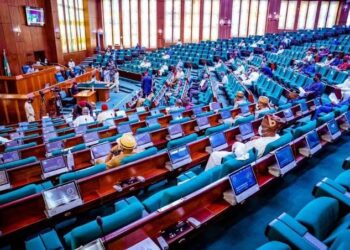British inflation has jumped to a 41-year high on soaring energy and food bills in a worsening cost-of-living crisis, data showed Wednesday on the eve of a key budget.
The Consumer Prices Index hit 11.1 percent in October, reaching the highest level since 1981, the Office for National Statistics (ONS) said in a statement.
This is coming on the heels of declaration bid by the immediate past president of America, Donald Trump, who in his announcement speech attacked Biden over inflation, crime and immigration, mocked climate change and congratulated himself for toppling the Islamic State, keeping North Korea in check and building a border wall with Mexico.
“Under our leadership, we were a great and glorious nation. But now we are a nation in decline,” he said. “This is not just a campaign this is a quest to save our country.
“In two years the Biden administration has destroyed the US economy,” he said. “With a victory we will again build the greatest economy ever.
“The blood-soaked streets of our once great cities are cesspools of violent crimes,” he said, vowing to “restore and secure America’s borders.”
A combative Trump launched into the 2024 White House race on Tuesday, setting the stage for a bruising Republican nomination battle after a poor midterm election showing by his hand-picked candidates weakened his grip on the party.
“America’s comeback starts right now,” the 76-year-old former president told hundreds of supporters gathered in an ornate American flag-draped ballroom at his palatial Mar-a-Lago residence in Florida.
“In order to make America great and glorious again, I am tonight announcing my candidacy for president of the United States,” Trump said, minutes after filing the official paperwork for his third presidential run.
The October figure beat market expectations of 10.7 percent and was higher than the Bank of England’s forecast peak.
“Rising gas and electricity prices drove headline inflation to its highest level for over 40 years, despite the Energy Price Guarantee,” said ONS chief economist Grant Fitzner.
Over the last year, gas prices have leapt by 130 percent and electricity prices by 66 percent, according to the ONS.
Runaway inflation comes despite state energy support, which sought to limit annual energy bills at an average of £2,500 per year.
Finance minister Jeremy Hunt blamed Russian President Vladimir Putin’s war in Ukraine for spiking prices, as well as the easing of pandemic curbs.
– ‘Tough’ decisions –
Hunt is expected Thursday to hike taxes and slash spending, despite the cost-of-living squeeze, as Prime Minister Rishi Sunak attempts to fix economic chaos wrought by predecessor Liz Truss.
“The aftershock of Covid and Putin’s invasion of Ukraine is driving up inflation in the UK and around the world,” Hunt said Wednesday.
“This… is eating into pay cheques, household budgets and savings, while thwarting any chance of long-term economic growth.”
The Ukraine conflict has also sent inflation soaring to the highest level in decades worldwide, sparking economic turmoil.
That has forced major central banks to raise interest rates, risking the prospect of recession as higher borrowing costs hurt businesses and consumers.
The Bank of England this month sprang its biggest rate hike since 1989 to combat sky-high inflation — and warned the UK economy may experience a record-long recession until mid-2024.
ALSO READ:Concerns Over FG’s Insistence On June Deadline For Fuel Subsidy Regime
The BoE lifted borrowing costs by 0.75 percentage points to 3.0 percent — the highest since the 2008 global financial crisis — to cool UK inflation that it saw peaking at almost 11 percent.
Hunt added that “tough” decisions would be needed in Thursday’s budget to help the BoE meet its 2.0-percent inflation target.
“We cannot have long-term, sustainable growth with high inflation,” he said.
The UK has meanwhile been blighted by strikes this year, as workers protest over wages that have failed to keep pace with surging inflation.
The retail prices index — an inflation measure which includes mortgage interest payments and is used by trade unions and employers when negotiating wage increases — rocketed to 14.2 percent in October from 12.6 percent in September, data showed Wednesday.












